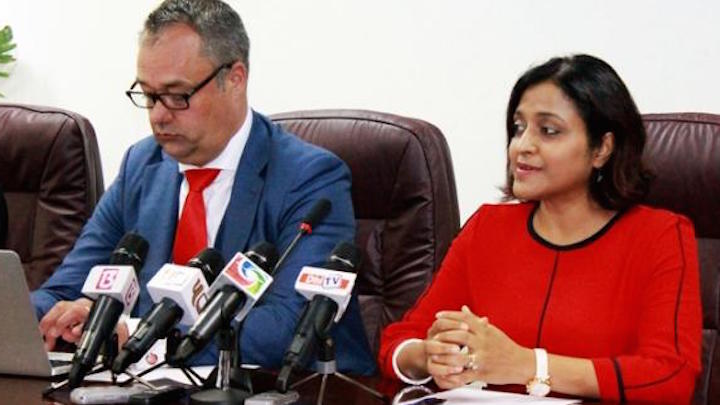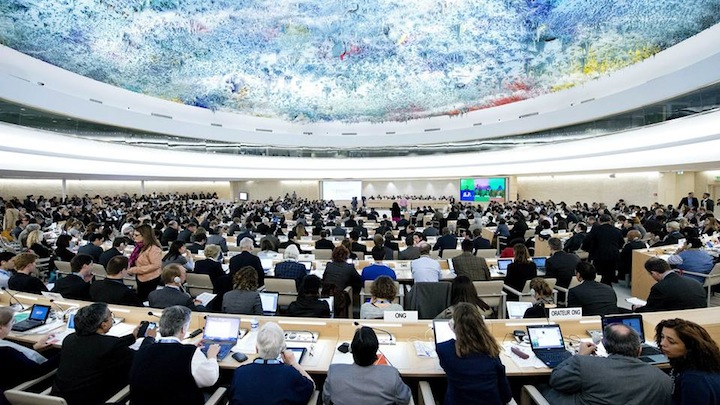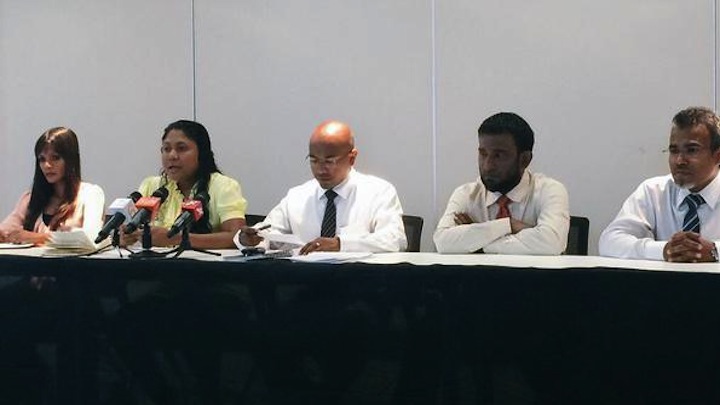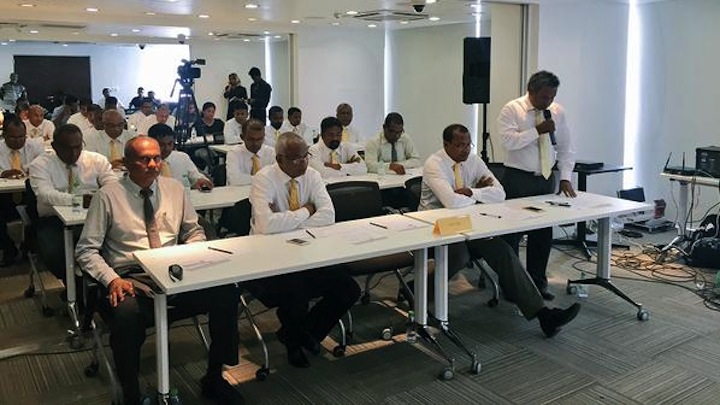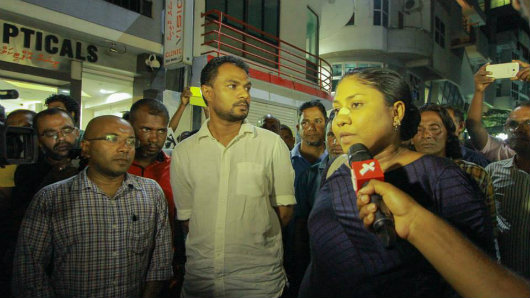UK-based international law firm Omnia Strategy is providing legal advice to the government in responding to a petition filed by former President Mohamed Nasheed at the UN working group on arbitrary detention.
The opposition leader’s international legal team is seeking a judgement declaring his imprisonment arbitrary and unlawful. The government has been asked to respond before the first week of July.
The government previously said the law firm owned by Cherie Blair, the wife of former British prime minister Tony Blair, was hired to “advise on strengthening the legislative framework” for democracy consolidation.
The foreign ministry said today that Omnia Strategy has “carried out a two weeks research mission in Malé and has been invited to review the current legal and constitutional framework in line with international standards and in particular to assist the government in preparing a response to the communication filed by former President Nasheed to the UN working group on arbitrary detention.”
Speaking at a press conference with foreign minister Dunya Maumoon this afternoon, Toby Cadman, a partner at the law firm, said due process was followed in Nasheed’s trial and that the government has prepared its defence.
The former president was sentenced to 13 years in prison over the military’s detention criminal court chief judge Abdulla Mohamed in January 2012.
“If the offence had occurred in the United Kingdom the former President could have been charged with an offence of kidnapping or false imprisonment, an offence which carries a maximum penalty of life imprisonment,” said Cadman.
“Throughout the legal proceedings against former President Nasheed, his constitutional right to effective legal representation has been guaranteed and when his legal representatives boycotted the proceedings, the former president was repeatedly reminded of his right to alternative legal representation”.
Cadman also said that Nasheed was not kept in solitary confinement, but was “detained in a facility that would not only meet international best practices, but arguably far exceed any acceptable level.”
Nasheed’s conviction on terrorism charges after a 19-day trial was widely criticised over apparent lack of due process. International pressure on the government to release the former president and other “political prisoners” have been mounting in recent weeks.
The European parliament and US Senators John McCain and Jack Reed have called for Nasheed’s immediate release.
Briefing the press in Washington DC after filing the petition in late April, Nasheed’s lawyer Amal Clooney said the terrorism trial violated due process and compromised the basic guarantee of presumption of innocence.
Amal said that the court had said that there was no need to call for defence witnesses because such witnesses “would not be able to refute the evidence submitted by the prosecution”.
“This tells you everything you need to know about the process. Because why call a defense witness, if you already know that the verdict is going to be guilty,” she said.
Following the government’s announcement that it has enlisted Omnia Strategy earlier this month, Nasheed’s Maldivian Democratic Party (MDP) expressed “disgust” with the law firm’s decision to represent President Abdulla Yameen’s administration.
Omnia Strategy also advises the governments of oil-rich Gabon and Kazakhstan. Gabon’s president, Ali Bongo Ondimba, was elected in 2009, after his father who ruled over the country for 42 years died in 2009.
MDP international spokesperson Hamid Abdul Ghafoor said the international community was “united in its condemnation of the Yameen regime’s thuggery and un-democratic behaviour.”
“The UN High Commissioner of Human Rights, the UN Special Rapporteur on Judges and Lawyers, India, The US Senate, the European Parliament and Amnesty International and many others have vigorously denounced the abuses to human rights and democracy by Yameen’s regime,” he said.
“It is hard to believe that Cherie Blair would want to keep company with such thugs of ill repute. It is unethical for Blair to work for this regime. No doubt she is being paid a small fortune, to help wash the blood off Yameen’s reputation.”
He added that the current administration “appears to have hired the most unethical and profiteering mercenaries money can buy.”
Dunya told the press today that the law firm’s fees and expenses will be revealed when its work is complete.
